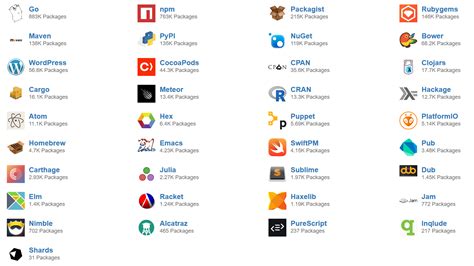Package managers are essential tools for developers, allowing them to quickly and easily install, update, and manage software packages. With the rise of open source development, package managers have become increasingly popular as a way to share code and collaborate on projects. There are many different types of package managers available, each designed to work with specific programming languages or frameworks. In this article, we will compare some of the most popular package managers and discuss which one is right for your language.
NPM (Node Package Manager) is the most widely used package manager for JavaScript applications. It allows developers to easily install, update, and manage Node.js modules. NPM also provides access to an extensive library of third-party packages that can be used in your project. Additionally, it has powerful command line tools that make it easy to search for and install packages.
Yarn is another popular package manager for JavaScript applications. It was created by Facebook and is similar to NPM in many ways. However, Yarn offers faster installation times and better security than NPM. Additionally, it supports offline installations and caching of packages, making it ideal for large projects.
Composer is a PHP package manager that makes it easy to install, update, and manage libraries and dependencies. It works with both local and remote repositories, and its dependency resolution system ensures that all required packages are installed correctly. Composer also integrates with version control systems such as Git, allowing you to keep track of changes to your project’s dependencies.
RubyGems is the official package manager for Ruby applications. It allows developers to easily install, update, and manage gems (libraries) from the RubyGems repository. It also provides access to a wide range of third-party gems, making it easy to find the packages you need.
Pip is the official package manager for Python applications. It allows developers to easily install, update, and manage packages from the Python Package Index (PyPI). Pip also supports virtual environments, making it easier to manage multiple versions of the same package.
Finally, there is NuGet, the official package manager for .NET applications. It allows developers to easily install, update, and manage packages from the NuGet Gallery. NuGet also supports automatic package restore, meaning that packages are automatically downloaded when needed.
When choosing a package manager, it is important to consider the language or framework you are using. For example, if you are developing a JavaScript application, then NPM or Yarn would be the best choice. Similarly, if you are working with PHP, then Composer would be the best option. Each package manager has its own advantages and disadvantages, so it is important to do your research before deciding which one is right for your project.
In conclusion, package managers are essential tools for developers, allowing them to quickly and easily install, update, and manage software packages. There are many different types of package managers available, each designed to work with specific programming languages or frameworks. When choosing a package manager, it is important to consider the language or framework you are using. By doing your research and comparing the various options, you can ensure that you choose the right package manager for your project.
